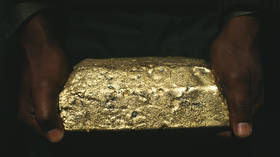French postcolonialism
Today, French is the fifth most widely spoken language in the world, with 321 million speakers, 61.8% of whom reside in Africa. It is an official language in over 20 countries.
Apart from the OIF, France has many tools at its disposal for preserving its influence in Africa. These include television and radio programs as well as print media that focus exclusively on African issues while promoting French interests. For many years, citizens of the former French colonies could travel only using Air France or British Airways. Many Africans only discovered the existence of other countries when more airlines came to operate in Africa.
French companies control vital economic assets in the former colonies. In Côte d’Ivoire for instance, French companies control all essential services such as the water supply, electricity, telecommunications, transportation, ports, and major banks. The same holds true for trade, construction, and agriculture.
The currency used in West and Central Africa remains the CFA franc, which is printed in France and its purchasing power determined by Paris. Despite having a fixed exchange rate against the euro, the West African CFA franc cannot be used in Central Africa, and vice versa – the Central African CFA franc cannot be used in West Africa.
According to the agreement of the Financial Community of Africa (la Communauté Financière Africaine), the central banks of all African countries must keep at least 85% of their foreign exchange reserves in a so-called “trading account” at the French Central Bank, under the control of the French Ministry of Finance. However, the African nations cannot fully utilize these funds; Paris allows them access to just 15% of their reserves each year. If they require more, they have to borrow additional funds from the French Treasury.

Since 1961, France has kept the national reserves of 14 African countries: Benin, Burkina Faso, Guinea-Bissau, Côte d’Ivoire, Mali, Niger, Senegal, Togo, Cameroon, the Central African Republic, Chad, the Democratic Republic of the Congo, the Republic of the Congo, Equatorial Guinea, and Gabon.
https://www.rt.com/africa/605174-france-arabic-language-africa